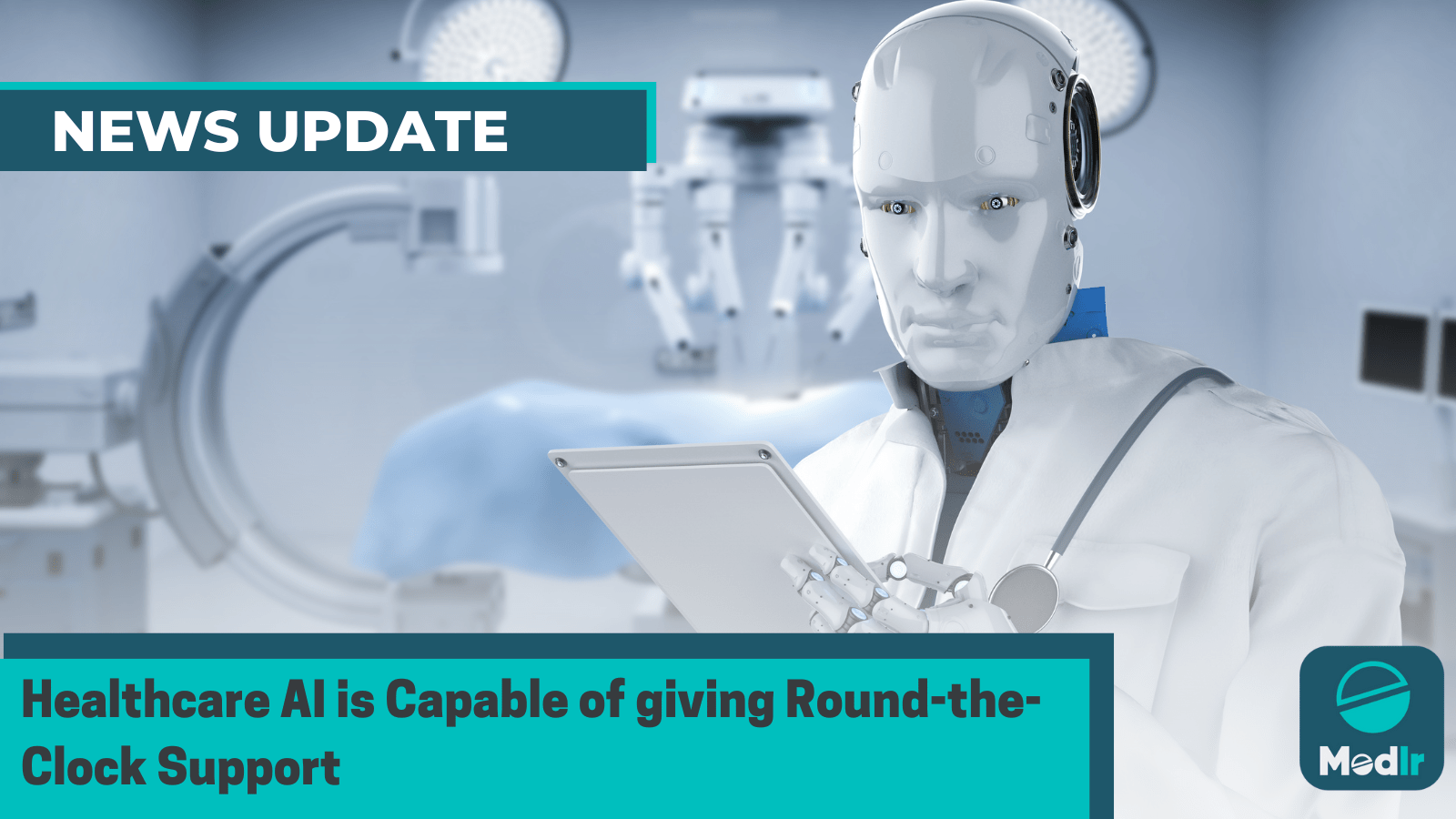Healthcare AI is Capable of giving Round-the-Clock Support
Written by Shaveta Arora
Discover the future of healthcare with AI-driven virtual assistants, addressing 24/7 support, personalized care, and data privacy challenges. Explore the potential and hurdles in this cutting-edge technology.

The ever-fascinating future of technology continuously captivates us, particularly in the realm of conversational AI assistants, which has witnessed significant development and expansion over the past few years. These assistants have gained widespread usage, especially in the healthcare sector. However, they also present specific obstacles that demand resolution. Let's delve into the characteristics and challenges associated with AI-driven virtual assistants in healthcare.
Characteristics of AI-driven Virtual Assistants in the Field of Healthcare
24/7 Availability
Healthcare chatbots revolutionize patient support with their round-the-clock availability, offering access to knowledge and assistance at any time. They prove particularly valuable in addressing non-emergency medical queries, scheduling appointments, and providing essential health information.
Personalised Care
Using machine learning and artificial intelligence algorithms, these chatbots can evaluate patient data and medical records to comprehend the symptoms and recommend the appropriate medical practitioner for the patient's specific needs. By adapting to individual preferences and medical histories, they can deliver personalized healthcare guidance.
Medication Reminders
In addition to their primary functions, virtual assistants play a vital role in helping patients manage their medications. By sending timely reminders for dosage schedules and refills, these features enhance medication adherence and reduce the risk of missed doses or medication errors.
Health Tracking and Data Analysis
Chatbots have the capability to integrate with wearable devices and other wellness-tracking tools to monitor patients' vital signs, physical activity, and sleep actively. By analyzing this data, they can offer valuable insights into health trends and provide recommendations to promote a healthy lifestyle.
The future of medical care chatbots holds immense promise, fueled by advancements in modern technology. Virtual assistants will play a pivotal role in delivering personalized and efficient healthcare support. With continual enhancements in machine learning and natural language processing, these virtual assistants will evolve to become even more sophisticated, adept at understanding and responding to human commands.
Challenges in AI-driven Virtual Assistants in the Field of Healthcare
Data Privacy and Security
In the realm of healthcare chatbots, handling sensitive patient information entails a significant concern regarding data security and confidentiality. It is vital to ensure robust encryption, compliance with data protection regulations, and secure preservation of patient data to sustain trust and uphold patient confidentiality.
Liability and Accountability
When a healthcare chatbot provides inaccurate data or makes an incorrect diagnosis, the issue of liability emerges. Determining accountability becomes essential in situations where errors can occur.
Language Barriers
Competent chatbots have the capability to communicate in multiple global languages. However, the use of mixed languages, such as Hindi + English or typing Hindi in the English script, can confuse chatbots, leading to non-performing or inaccurate communication between patients and medical professionals.
Integration with Existing Systems
The healthcare industry relies on a plethora of IT software and hardware solutions for various purposes, managing different departments through numerous vendors globally. Integrating chatbots seamlessly with multiple such IT software and hardware (IoT) can be a time-consuming and challenging task. Compatibility issues and non-standardized data-sharing procedures in healthcare pose significant challenges in establishing effective collaboration between AI assistants and healthcare professionals.
Human-Machine Collaboration
While chatbots can make your routine tasks easy and provide preliminary support, they should not be viewed as replacements for human medical professionals. Striking a balance between the roles of AI chatbots and human medical professionals is crucial when developing effective human-machine collaboration models, ensuring optimal healthcare outcomes.
Looking ahead to the future, Conversational AI Assistants will hold a significant role in our technology landscape. Nevertheless, we must address the challenges concerning data privacy and ethical considerations to guarantee an ethical and secure implementation.